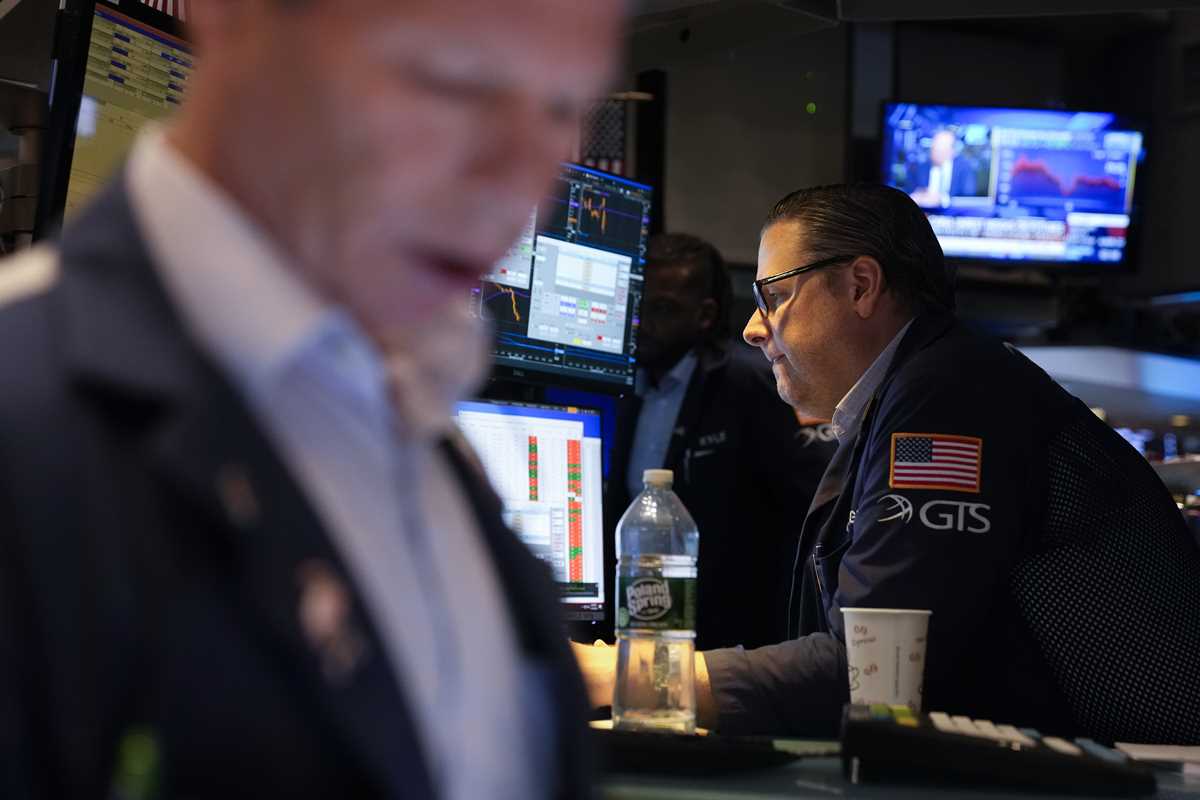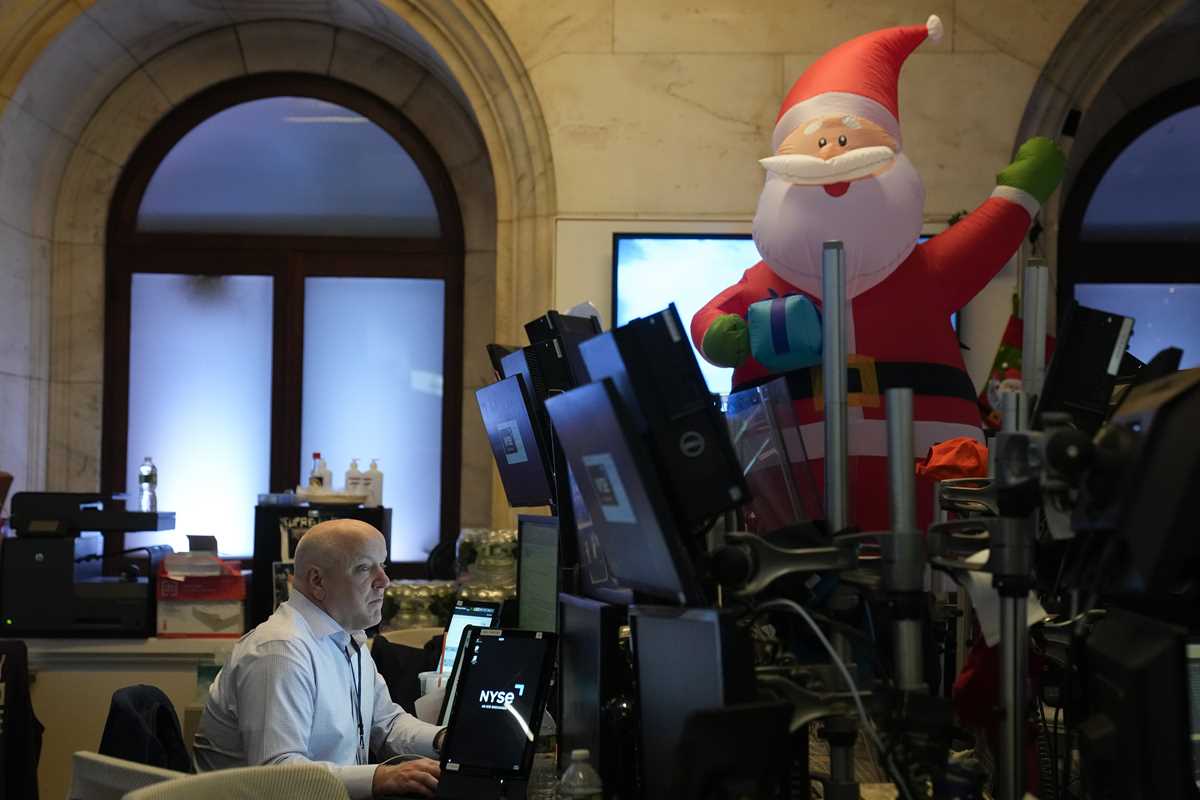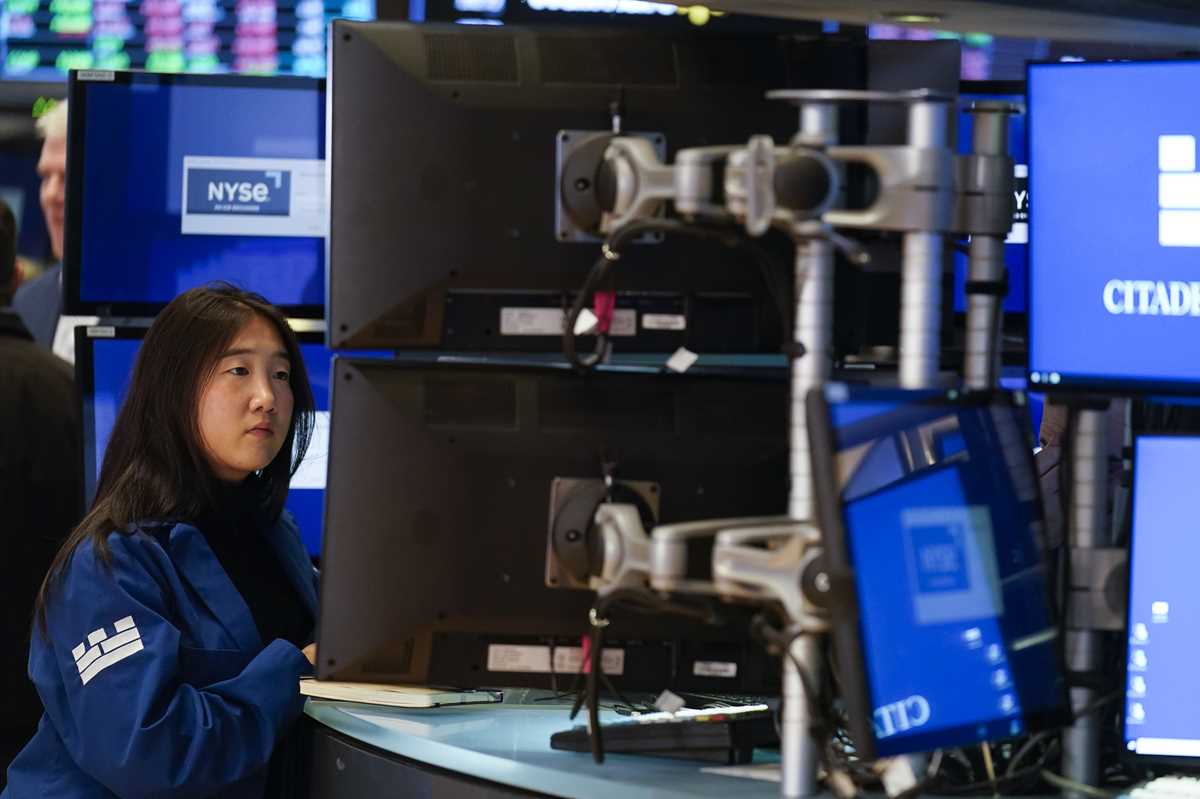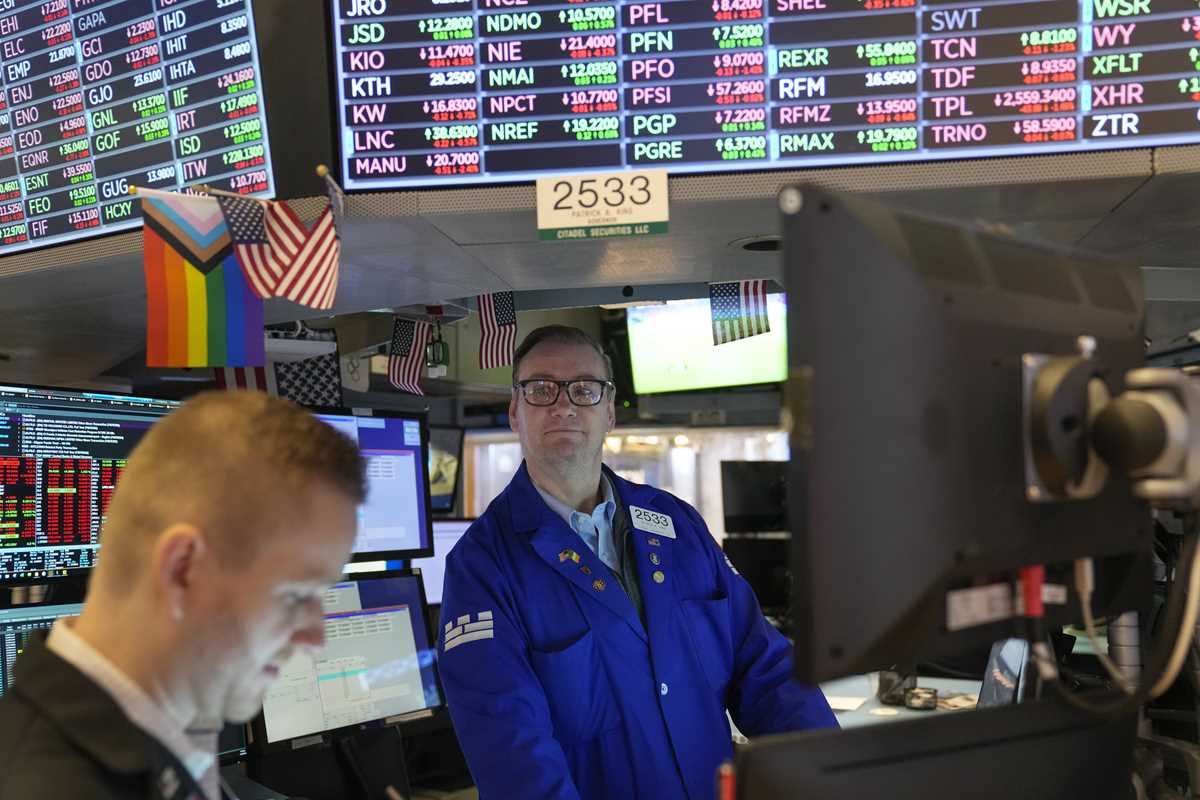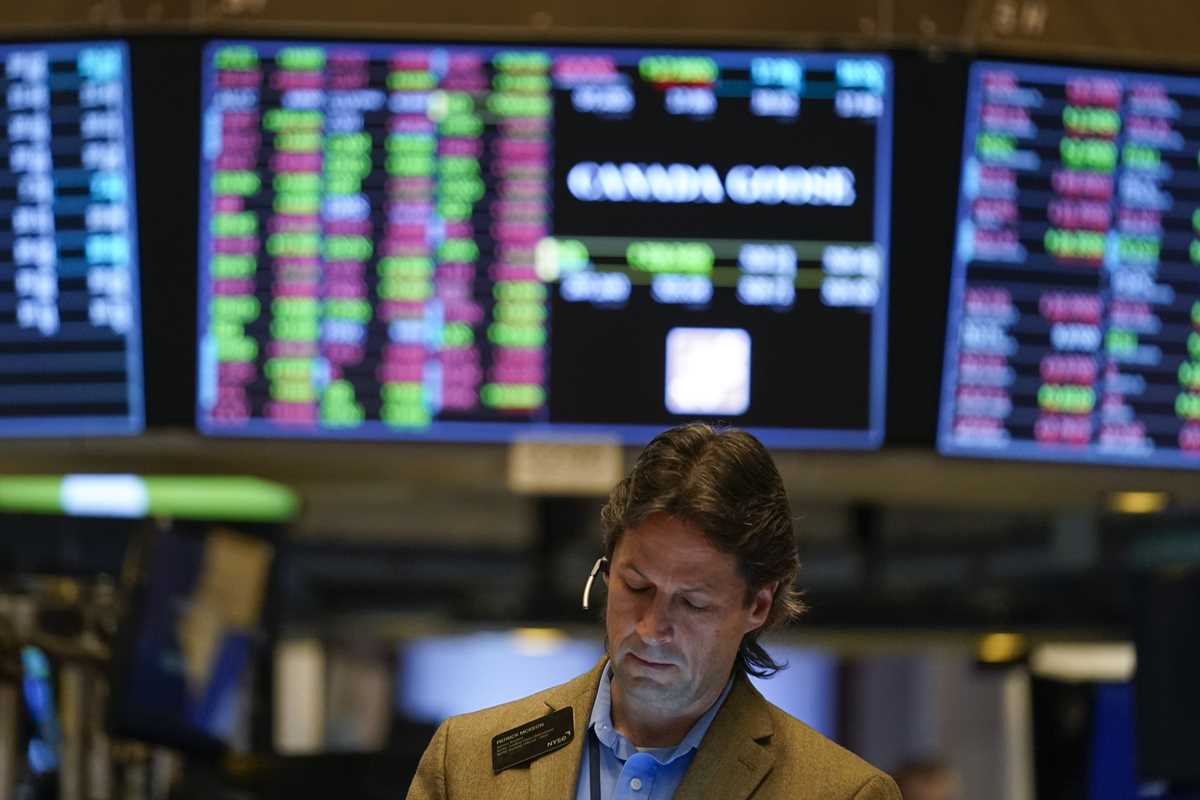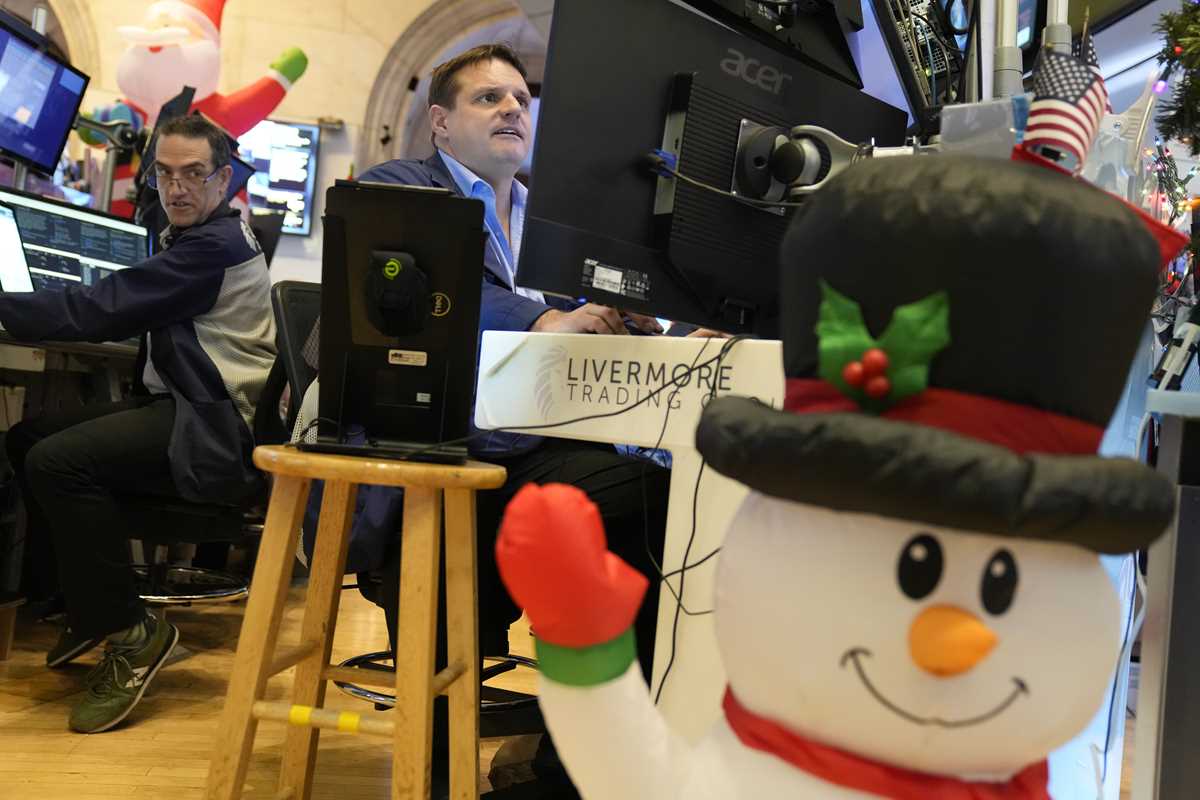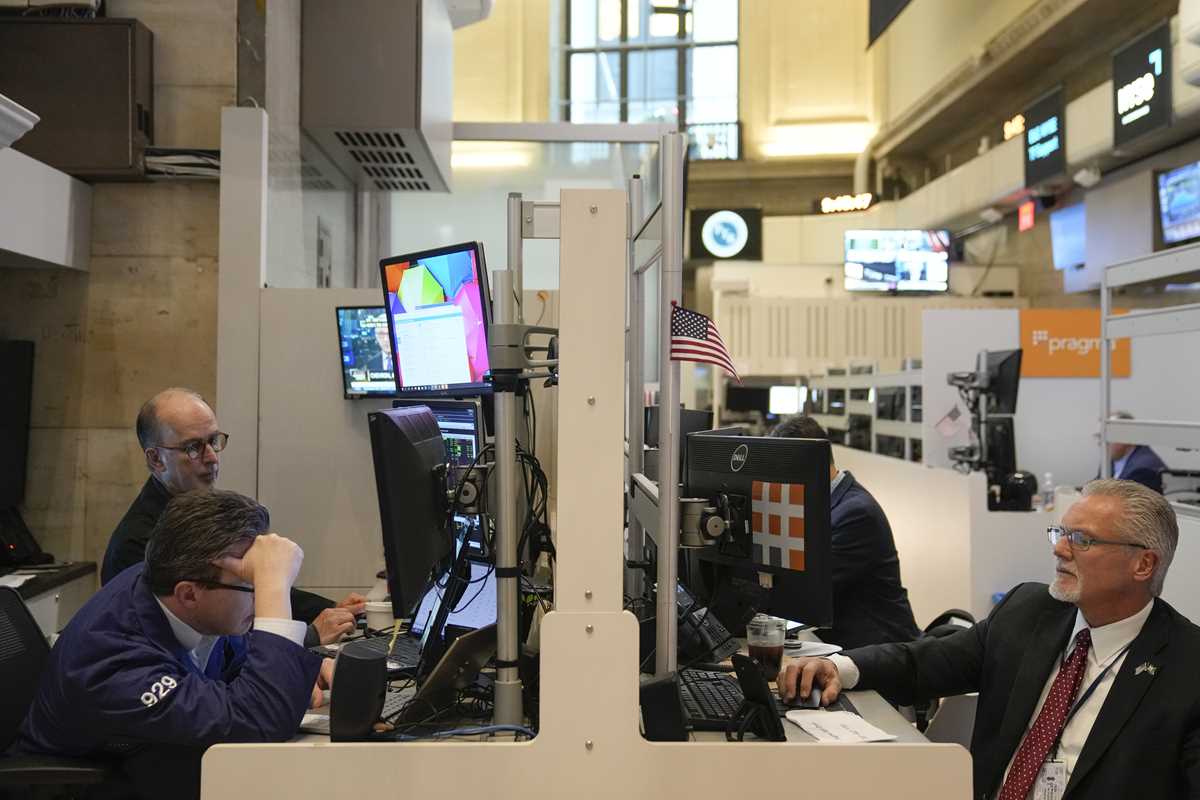Stocks fell broadly on Wall Street in afternoon trading Monday as protests spread in China calling for President Xi Jinping to step down amid growing anger over severe COVID-19 restrictions.
The world’s second largest economy has been stifled by a “zero COVID” policy which includes lockdowns that continually threaten the global supply chain at a time when recession fears hang over economies worldwide. The recent upheaval in China is the greatest show of public dissent against the ruling Communist Party in decades.
The S&P 500 fell 1.2% as of 1:45 p.m. Eastern, with nearly 90% of the stocks in the benchmark index in the red. The Dow Jones Industrial Average fell 383 points, or 1.1%, to 33,965 and the Nasdaq fell 1.1%.
Markets in Asia and Europe fell. Bond yields held relatively steady. The yield on the 10-year Treasury rose to 3.71% from 3.69% on Friday.
Technology companies were the biggest weights on the broader market. Apple, which has seen iPhone production hit hard by lockdowns in China, fell 2.2%.
Banks and industrial stocks also helped pull the market lower. JPMorgan fell 1.5% and Boeing slid 2.8%.
Several casino operators gained ground as the Chinese gambling haven of Macao tentatively renewed the their licenses. Las Vegas Sands rose 1.3% and Wynn Resorts gained 4.6%.
The fallout from the collapse of crypto exchange FTX continued. Cryptocurrency lender BlockFi is filing for Chapter 11 bankruptcy protection. Cryptocurrency exchange Coinbase Global fell 4.1% and the price of Bitcoin slipped 2.8%.
Smaller company stocks also lost ground. The Russell 2000 was down 1.3%.
Wall Street is coming off of a holiday-shortened week that was relatively light on corporate news and economic data. Investors have a busier week ahead as they continue monitoring the hottest inflation in decades and its impact on consumers, business and monetary policy.
Anxiety remains high over the ability of the Federal Reserve to tame inflation by raising interest rates without going too far and causing a recession. The central bank’s benchmark rate currently stands at 3.75% to 4%, up from close to zero in March. It has warned it may have to ultimately raise rates to previously unanticipated levels to rein in high prices on everything from food to clothing.
Federal Reserve Chair Jerome Powell will speak at the Brookings Institution about the outlook for the U.S. economy and the labor market on Wednesday.
The Conference Board will release its consumer confidence index for November on Tuesday. That could shed more light on how consumers have been holding up amid high prices and how they plan on spending through the holiday shopping season and into 2023.
The government will release several reports about the labor market this week that could give Wall Street more insight into one of the strongest sectors of the economy. A report about job openings and labor turnover for October will be released on Wednesday, followed by a weekly unemployment claims report on Thursday. The closely-watched monthly report on the job market will be released on Friday.
____
Elaine Kurtenbach and Matt Ott contributed to this report.
One question that investors frequently ask is “when do I sell a stock?” That can be tricky to answer when stocks are going up, but it can be just as tricky when stocks are going down. And that’s even more the case when it comes to penny stocks.
Many investors who buy penny stocks do so knowing that they’re placing a speculative bet. This means they’re willing to hold on to the stock even when fundamental and technical trends are working against them. But, depending on your position, there are times when it’s best to sell some shares even if you have to take a loss and try again another day.
Penny stocks are typically regarded as stocks that trade below $1 (i.e. for pennies on the dollar). But in recent years, the definition has expanded to include all stocks that trade for less than $5. And that’s the definition being used in this special presentation.
We’re looking at seven penny stocks that investors should sell now. Each has market forces that suggest the stock price still has room to go down. That means selling today can help you get a better price in the future.
Read More: Wall Street slips as lockdown protests spread in China



